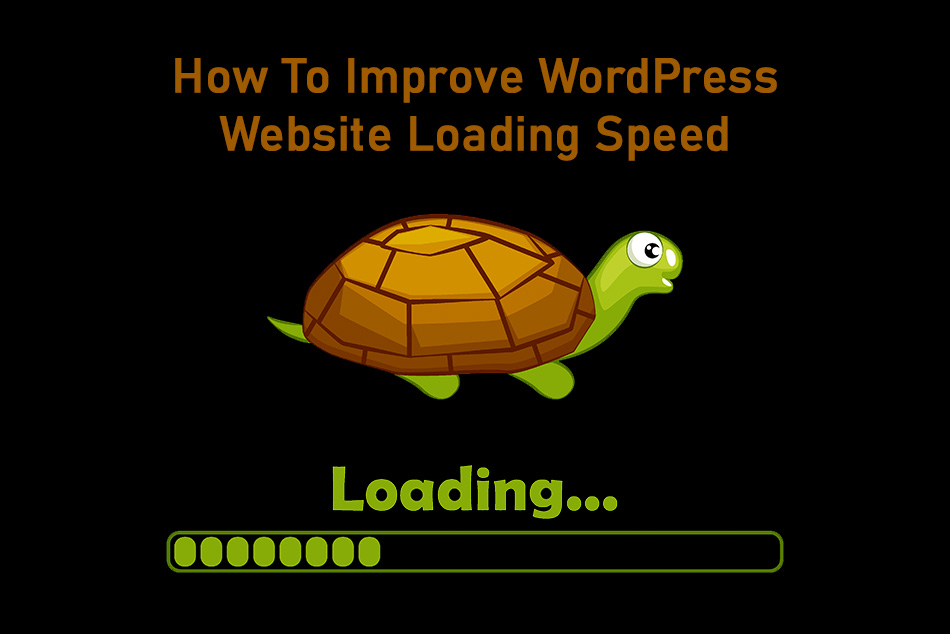In this era, everything starting from our manual work to things we do over the internet demands speed. If you are a WordPress user for your online business, you would want your website pages to load in no time. But unfortunately, this is not the case every time because of varied reasons.
If you are wondering about how to improve WordPress website loading speed, you are at the right blog. This blog explains various ways that can help to improve the performance and speed of your WordPress website.
Table of Contents
Why Increase The Speed Of WordPress Loading?
Suppose you open a website and find that it is taking too long to load, your instant reaction would be to press the back button and search for other websites. We often tend to lose patience considering that there are so many alternatives available before us. The same would happen to your website as well if it takes forever to load. As per Google, a website should not take more than 2 seconds to load, otherwise, browsers would lose interest.
Additionally, if your website performs well, it will automatically rank higher in Google search or other search engines. The faster the website, the higher the rank in search engines.
Moreover, WordPress, due to its work function takes longer than other websites to load. This is because when browsers visit WordPress, it gathers information from various sources available over the internet and then converts them into an HTML file to send to the browser. Not only this, WordPress’s plugins and themes also consume resources even when not in use. So many things running simultaneously make WordPress slow.
How to improve WordPress website loading speed – 5 Working Methods
There are several ways by which you can improve the speed of loading of your WordPress website, some of them are mentioned as follows:
1. Run Performance Tests
Many reasons affect the wordpress website performance. It can be the visitor’s geographic location, internet speed, etc. Also, one website can perform variedly for different pages, maybe because one page is more optimized than the other.
Now, to get a rough idea of how your website performs overall, you need to run a performance test. For this, you can use a free tool like Website Grader. This tool also suggests speed which can be applied for better performance. It is recommended to frequently keep running these tests especially when you add any new content to your website.
2. Select Good Hosting Provider
Using good-quality web hosting is always recommended. It is necessary to choose a bandwidth as well as a hosting provider that meets your performance requirements. Some of the types of hosting provided by WordPress hosts are shared hosting, virtual private server, dedicated hosting, managed WordPress hosting, etc.
Your WordPress website performance depends on which hosting plan you decide to invest in. For example, if you choose shared hosting services to cut costs, you will have to share the same server with other websites. This will automatically decrease the speed and performance of your website since the resources are being shared by others as well.
Instead, if you have an established website and have no tight budgets, dedicated hosting or VPS from a good provider is the best option to go for. Your website will have enough resources to handle huge traffic.
3. Delete Plugins Not In Use
Never focus on the number of plugins you have but focus on the type or quality of the plugins you use in your WordPress. Each plugin means a particular kind of software running on your website. If you overcrowd your website with too many plugins, multiple software will function simultaneously which can delay the loading process of the website.
Even if a plugin is not used, it will run in the background. Hence, it is better to uninstall, delete, or deactivate all the plugins not used. Consider plugins that do not use a lot of resources but still perform their tasks efficiently.
Do a lot of research and install high-quality plugins only to improve WordPress website performance.
4. Optimize Images Frequently
Look what you are putting on your website. Whatever content you put, be it in the form of texts, images, or videos, should be optimized regularly, especially for images and videos. Most of the time, the website lags because of contains high-resolution images.
To overcome the problems, try reducing the file size without decreasing the image quality. Try to save space, but do not provide any kind of unappealing visuals that will make browsers lose interest in your website. Some of the image-optimizing plugins are EWWW Image Optimizer, SEMRUSH, etc.
5. Try Keeping Your Website Designs Minimal
Another easy solution that can increase the loading speed of your lagging WordPress website is to provide less content to the browsers. This does not mean providing half information, but keeping it short and to the point. Keeping the designs and pages simple will take websites less time to load.
Simple designs also increase the readability for browsers as they find it easier to understand the interface of the website. Hence, take some time and review all the pages of your website. Trim out anything unnecessary. This will increase your website’s speed to a great extent.
Conclusion
You might now be clear on how you can easily solve the speed issue of your WordPress website. Follow any of the above-mentioned ways and you will see how the performance of your website has increased. Make all the efforts to optimize your pages to attract as much traffic as possible.


0 Comments